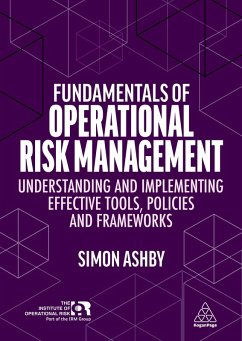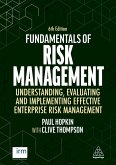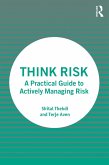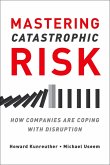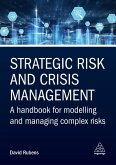Threats to an organization's operations, such as fraud, IT disruption or poorly designed products, could result in serious losses. Understand the key components of effective operational risk management with this essential book for risk professionals and students.
Fundamentals of Operational Risk Management outlines how to implement a sound operational risk management framework which is embedded in day-to-day business activities. It covers the main operational risk tools including categorisation, risk and control self-assessment and scenario analysis, and explores the importance of risk appetite and tolerance.
With case studies of major operational risk events to illustrate each concept, this book demonstrates the value of ORM and how it fits with other types of risk management. There is also guidance on the regulatory treatment of operational risk and the importance of risk culture in any organization. Master the essentials and improve the practice of operational risk management with this comprehensive guide.
Fundamentals of Operational Risk Management outlines how to implement a sound operational risk management framework which is embedded in day-to-day business activities. It covers the main operational risk tools including categorisation, risk and control self-assessment and scenario analysis, and explores the importance of risk appetite and tolerance.
With case studies of major operational risk events to illustrate each concept, this book demonstrates the value of ORM and how it fits with other types of risk management. There is also guidance on the regulatory treatment of operational risk and the importance of risk culture in any organization. Master the essentials and improve the practice of operational risk management with this comprehensive guide.
"Simon Ashby is very well placed through his long association with the Institute of Operational Risk to write what will prove to be the definitive book on operational risk. He challenges us to expand our understanding of operational risk to encompass 'unpredictable outcomes of the efficiency and effectiveness of operations.' Using a series of compelling case studies, he brings the subject alive. It is sobering to see how many of the selected case studies had underlying cultural drivers. I found the section on risk culture particularly practical in its insights to monitoring and taking action. The approach to operational risk event data establishes the benefits of learning from past events and ensuring recurrence is prevented, which surely is the essence of any robust approach to operational risk." Alex Hindson, Chief Risk & Sustainability Officer, Argo Group

